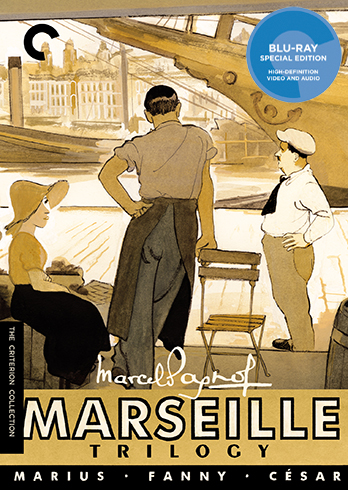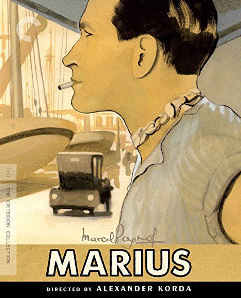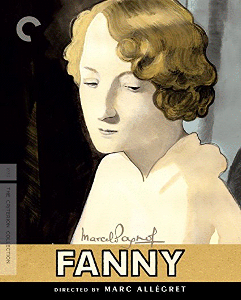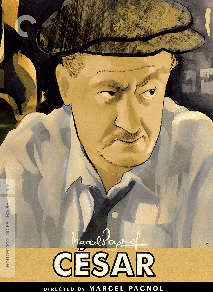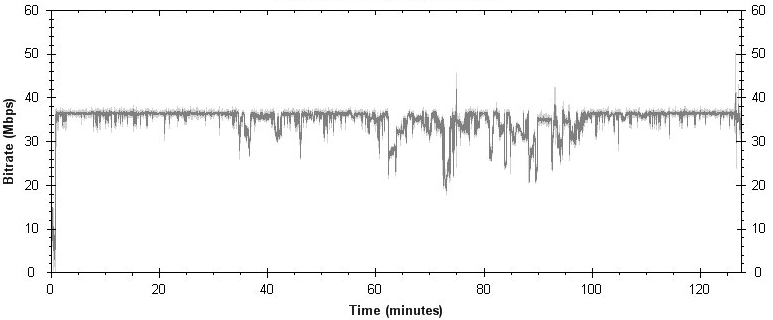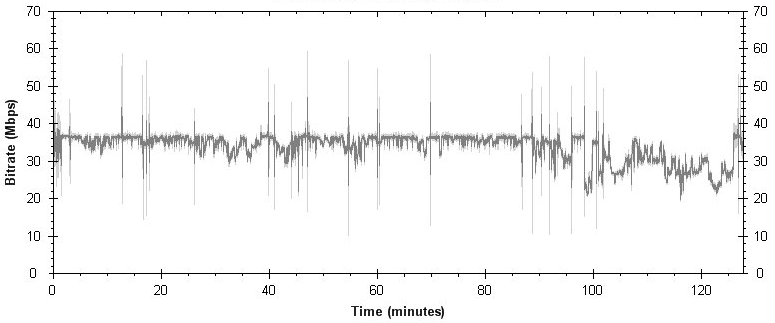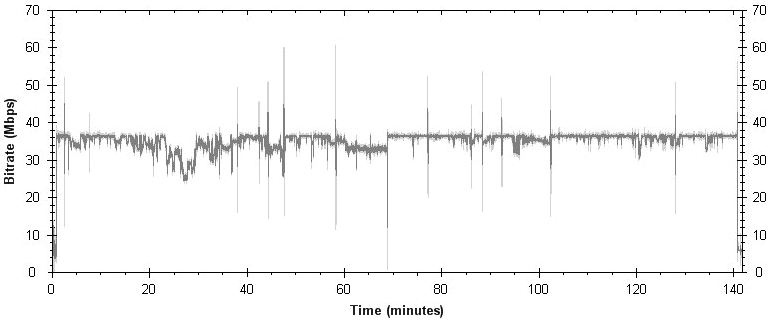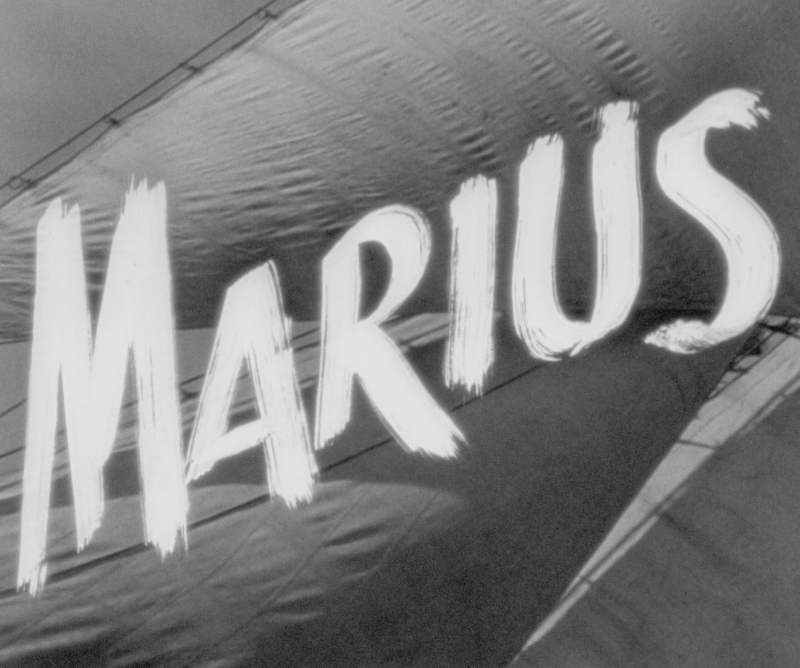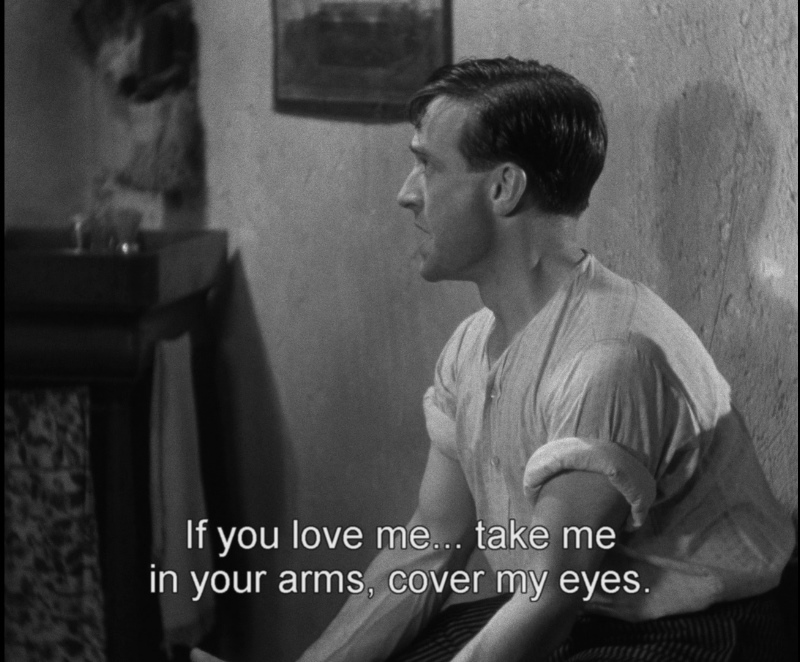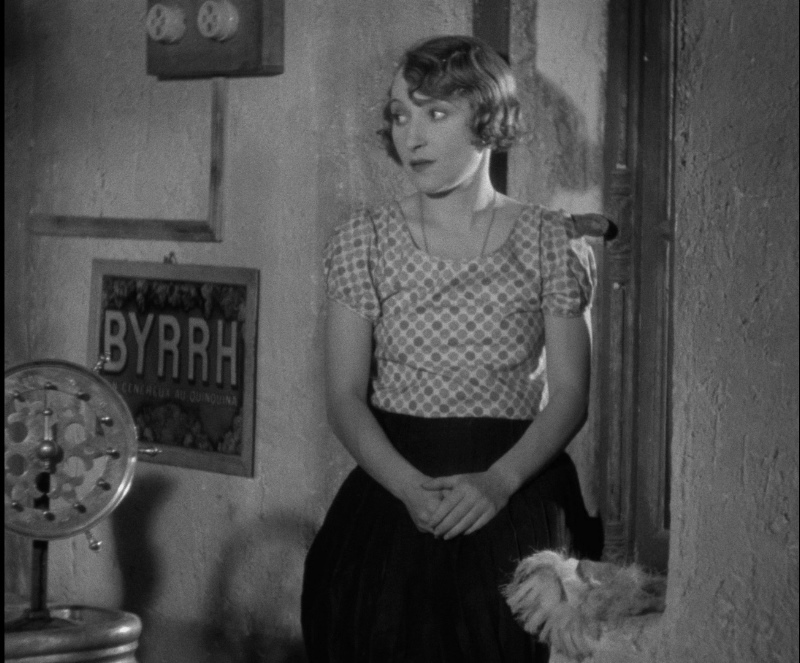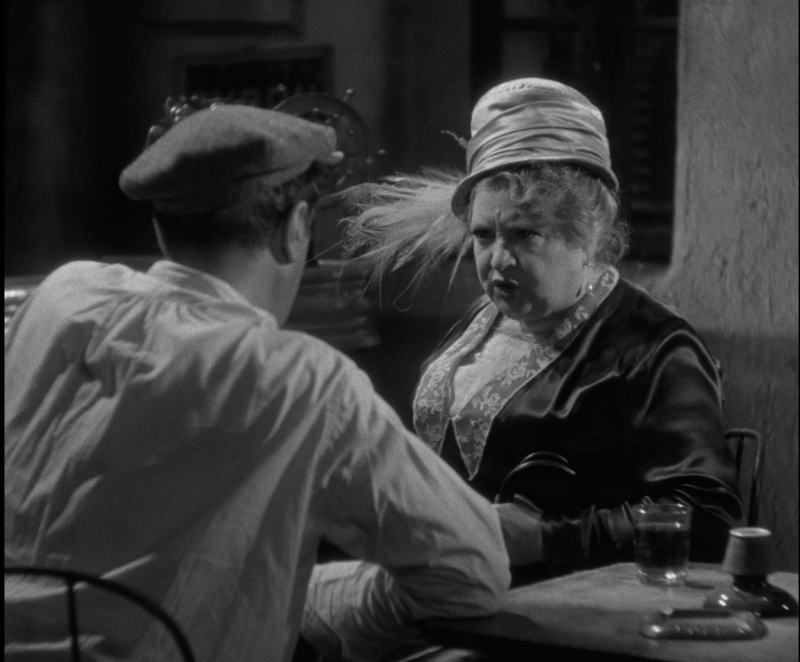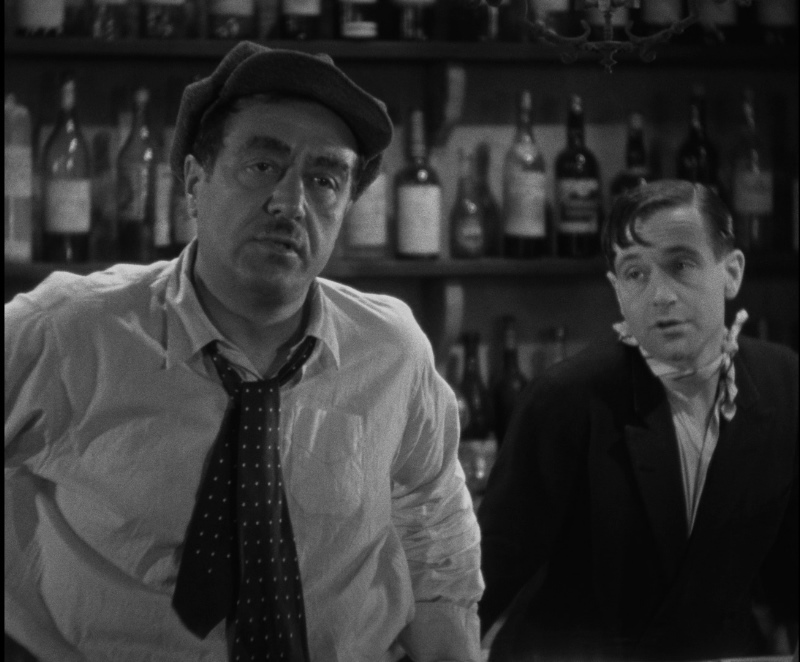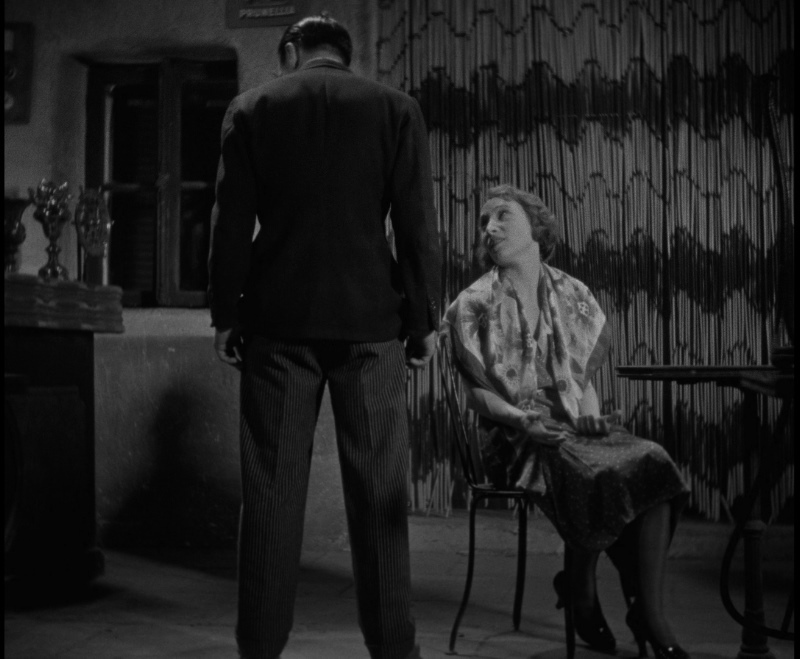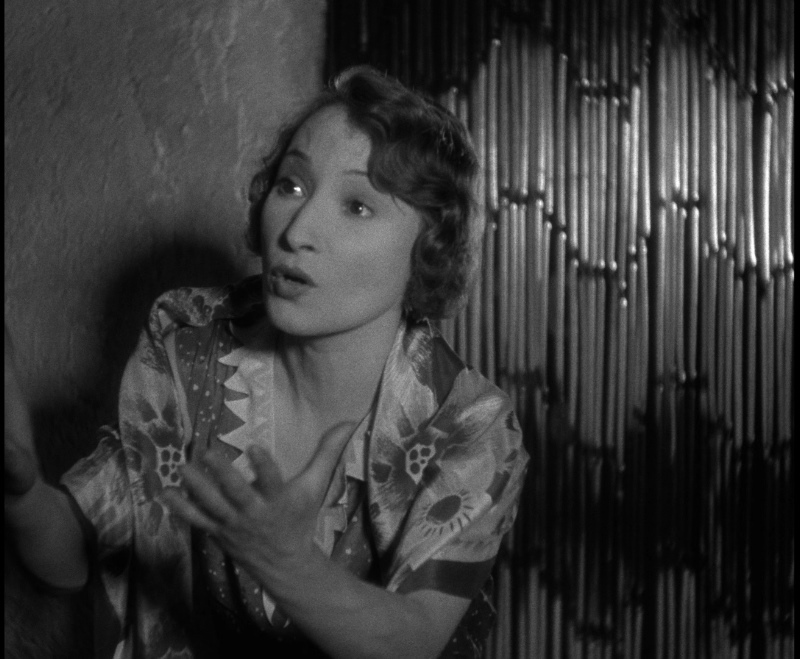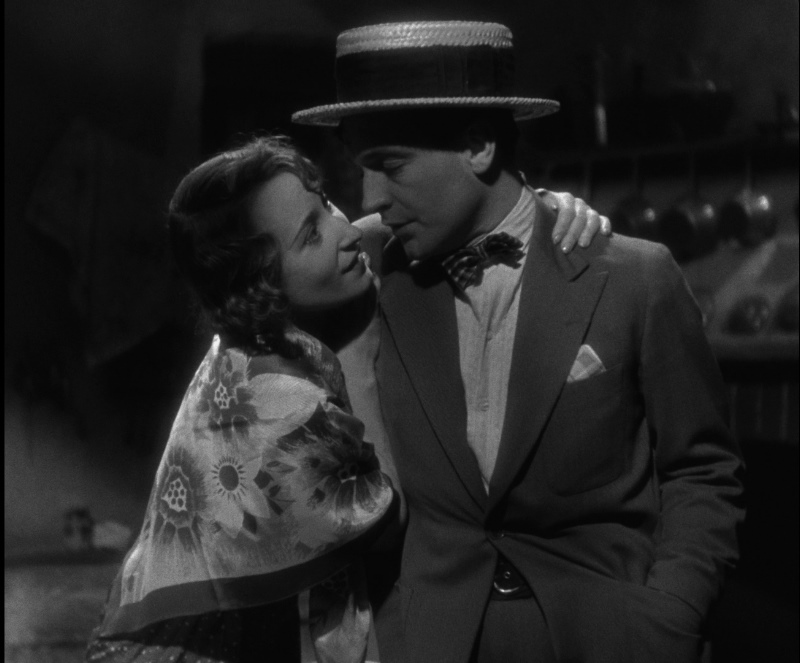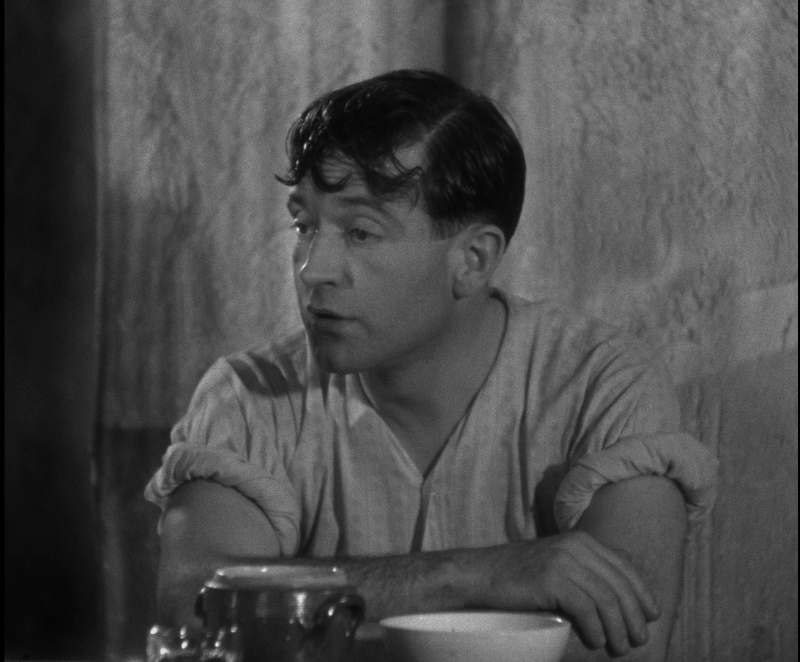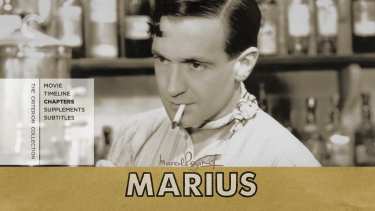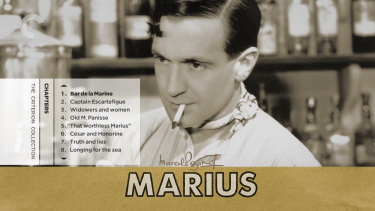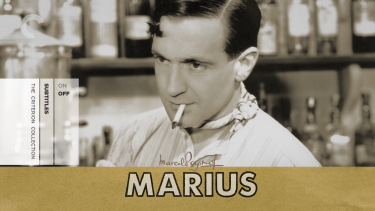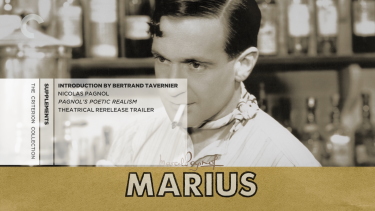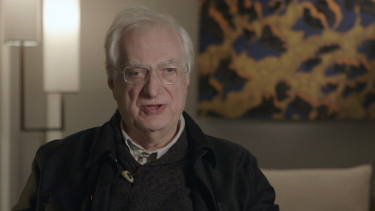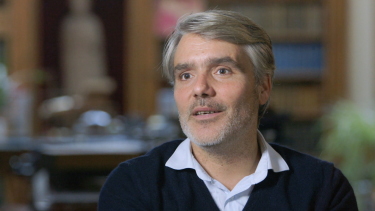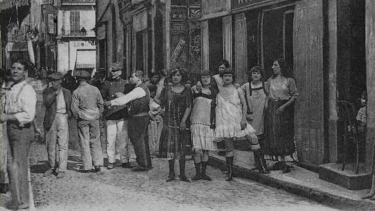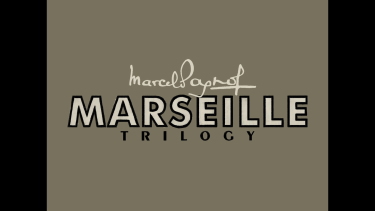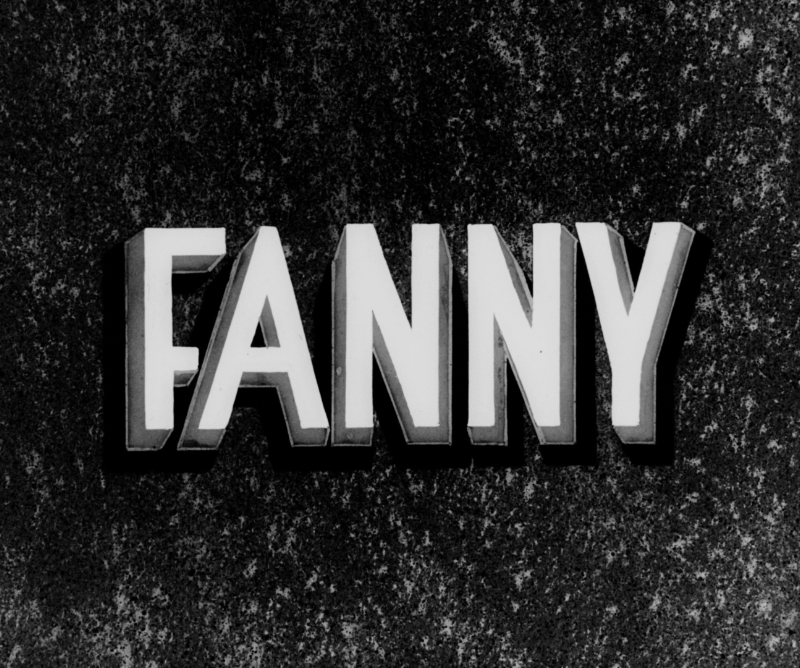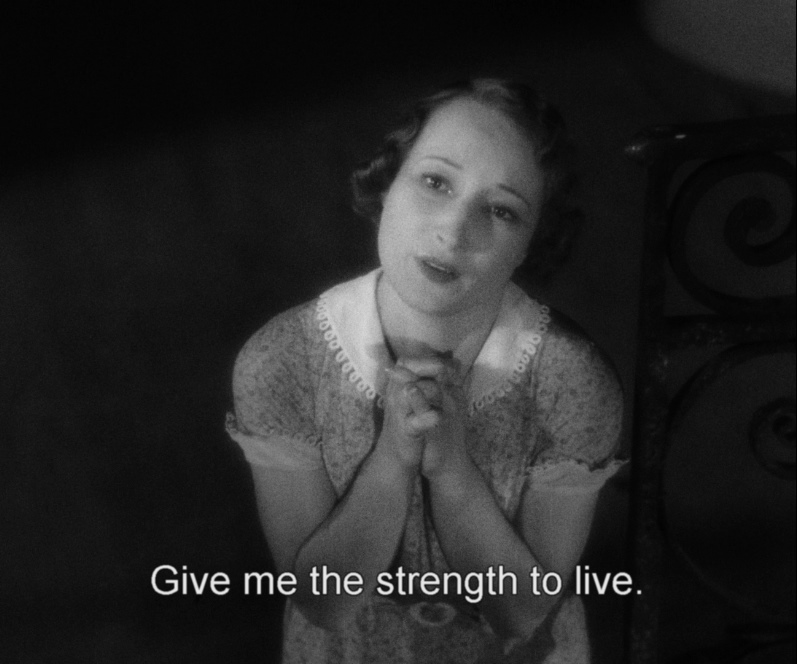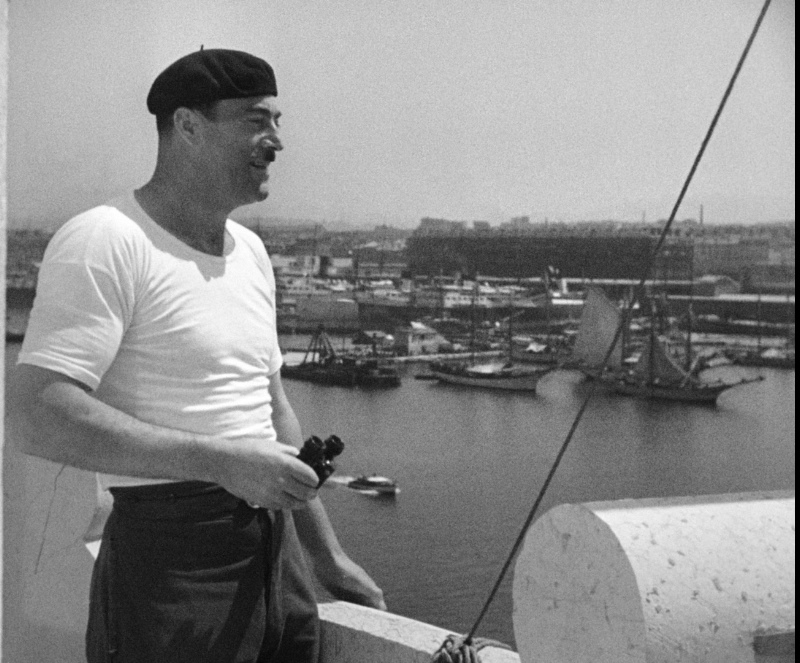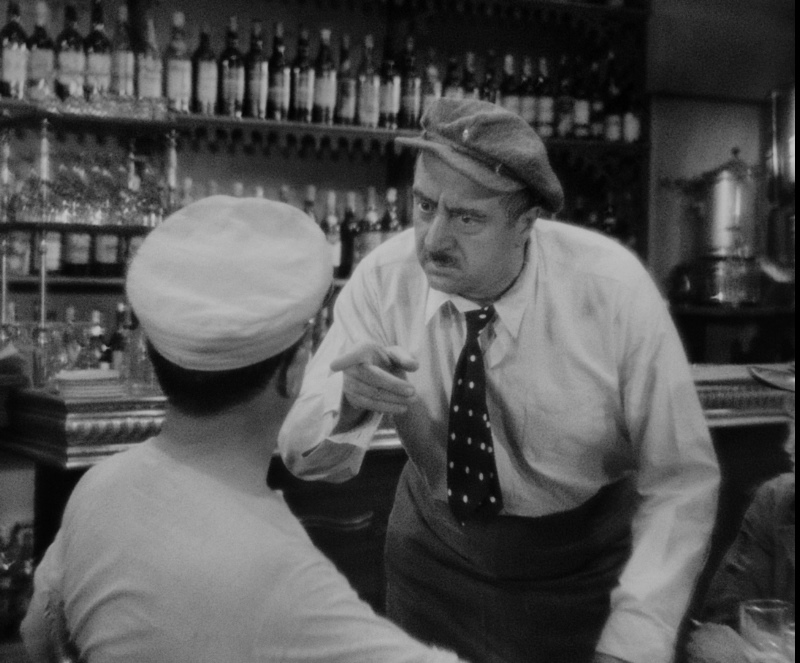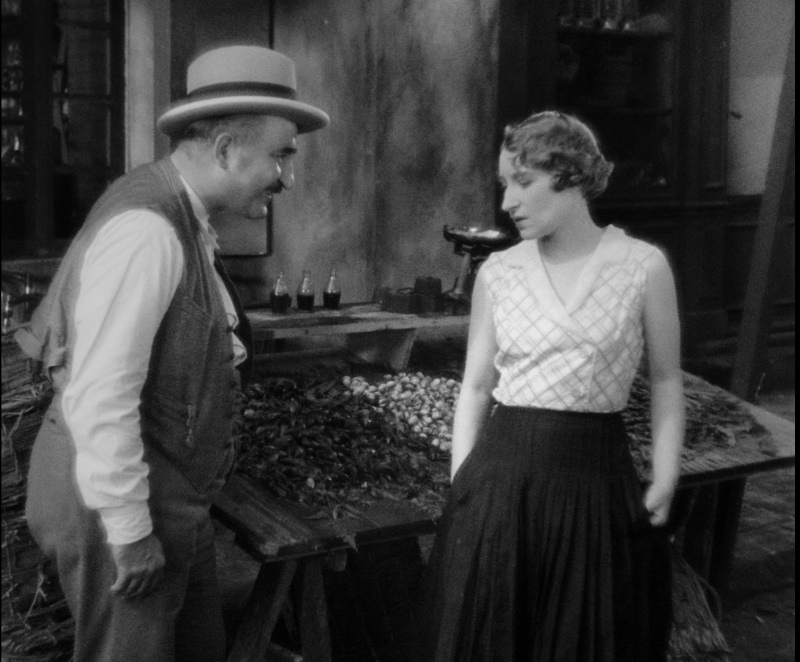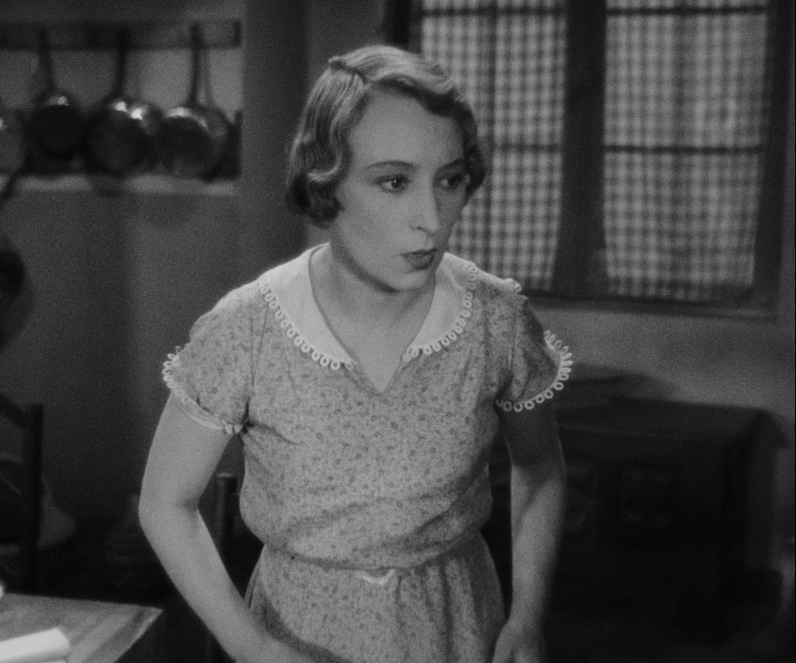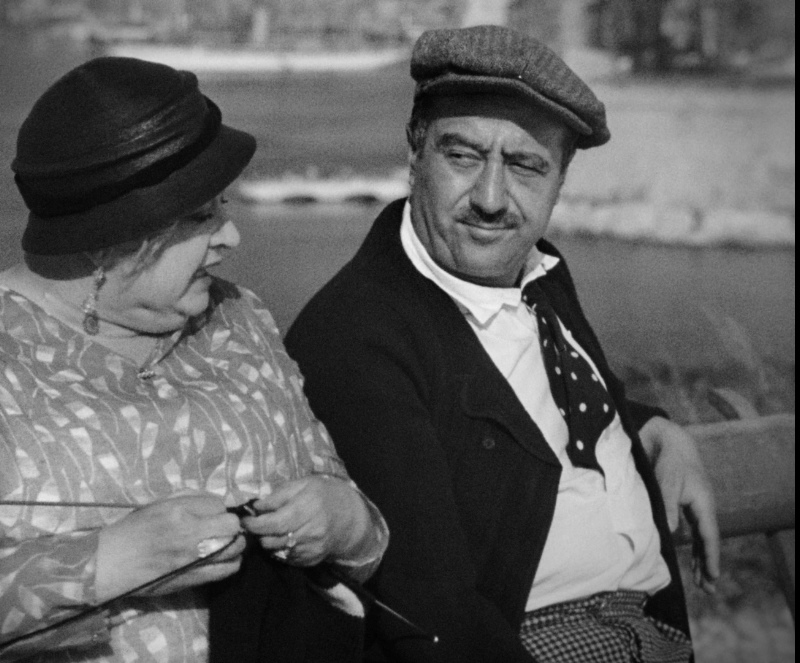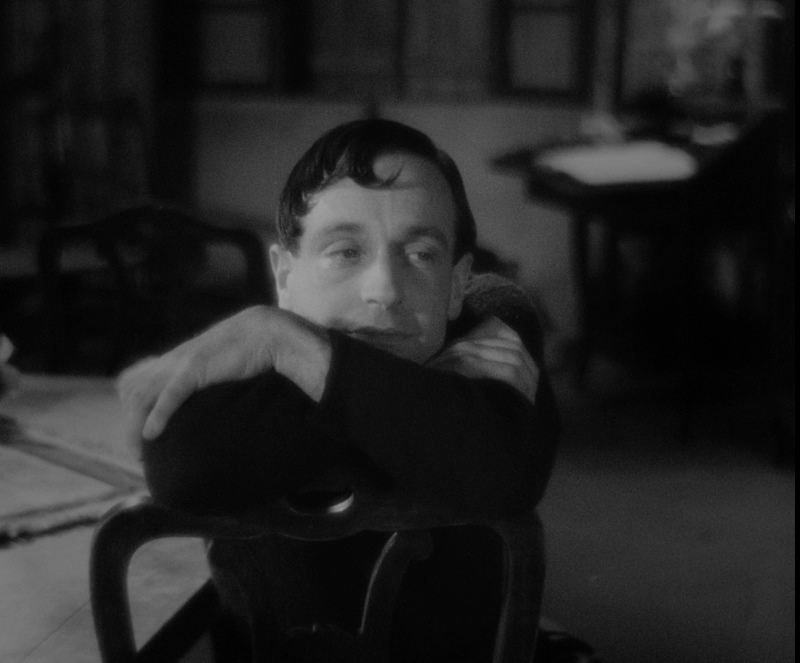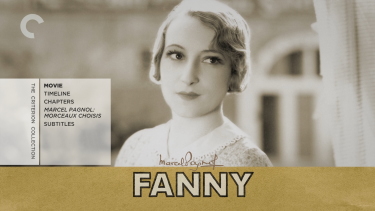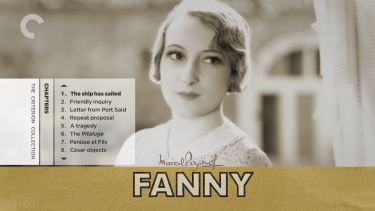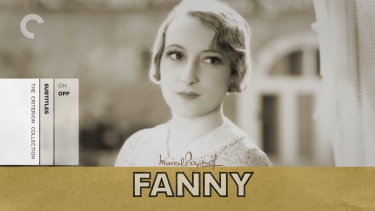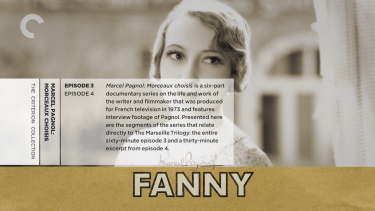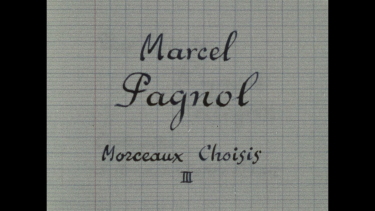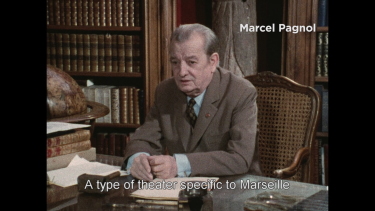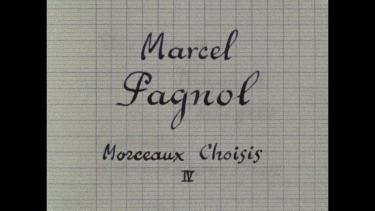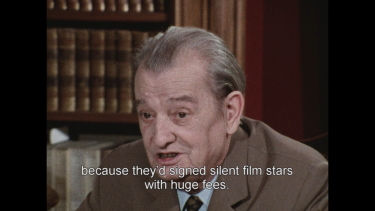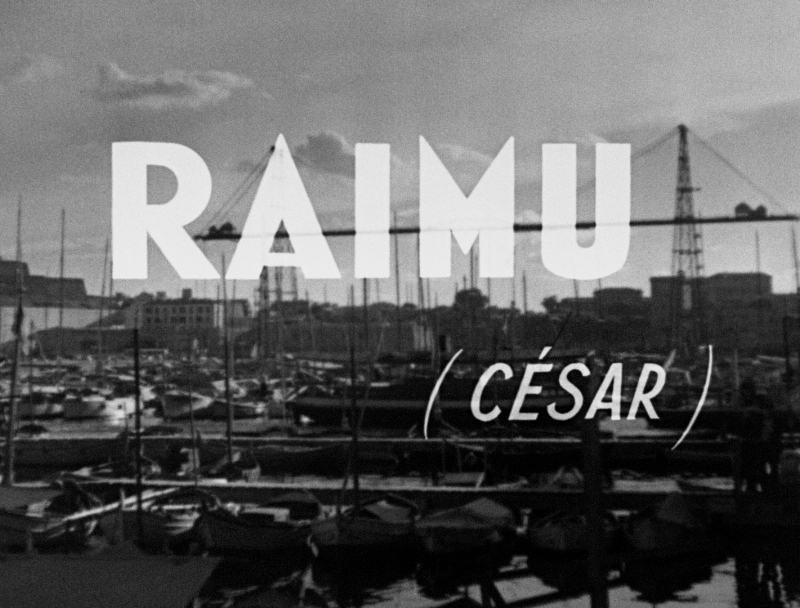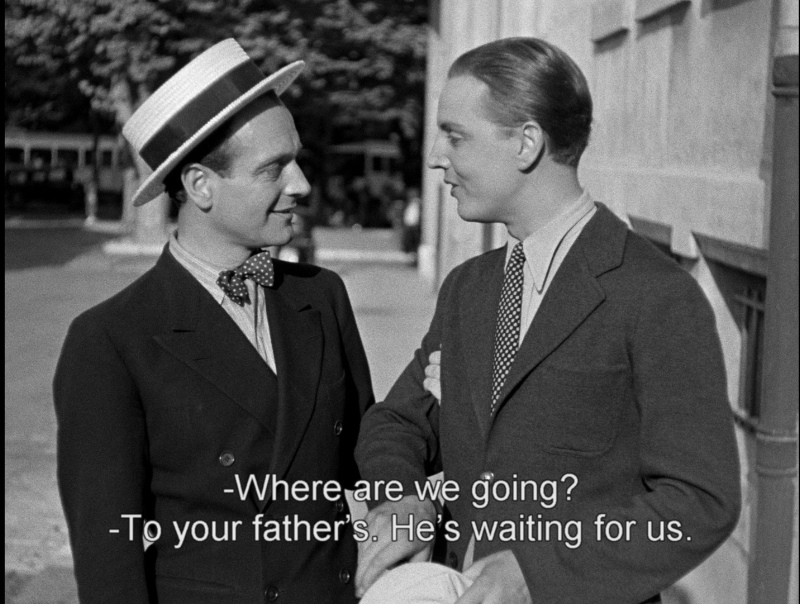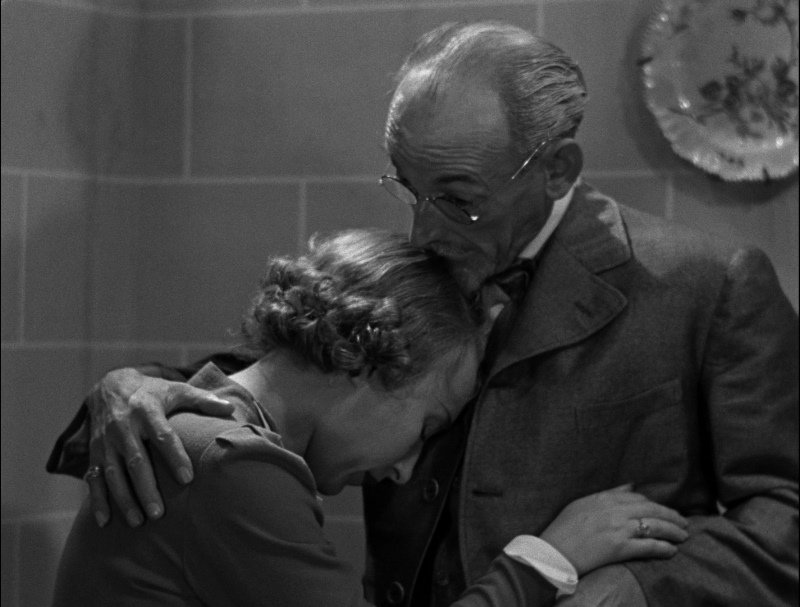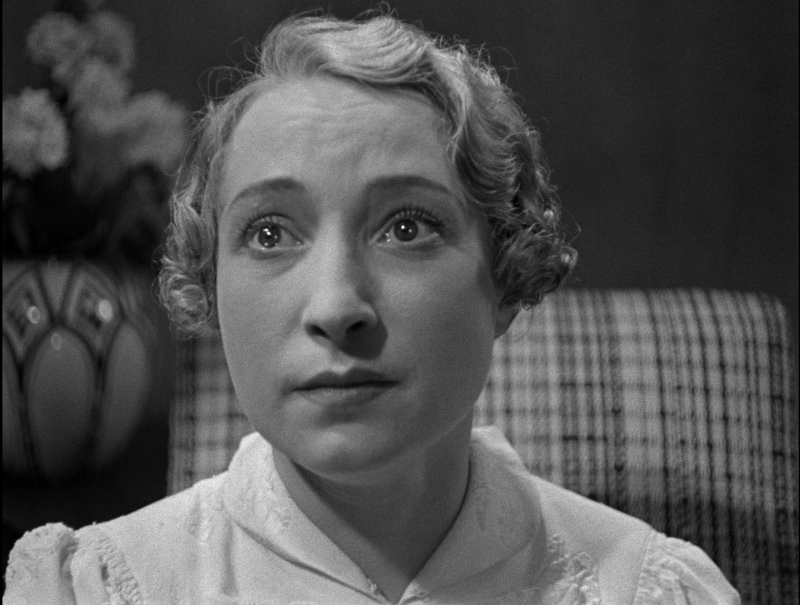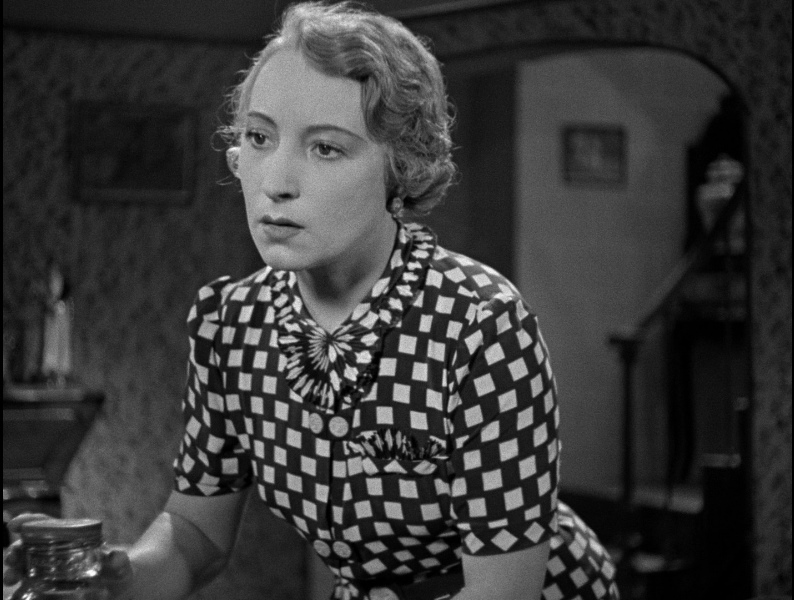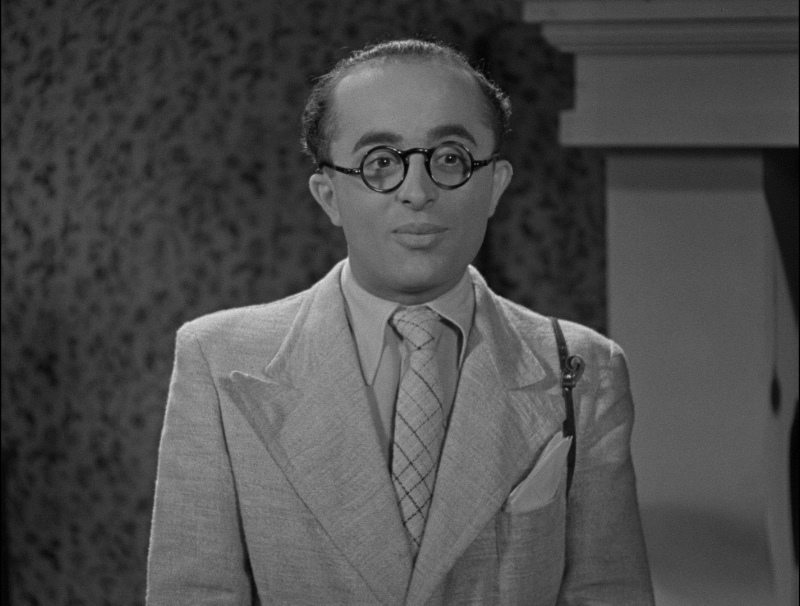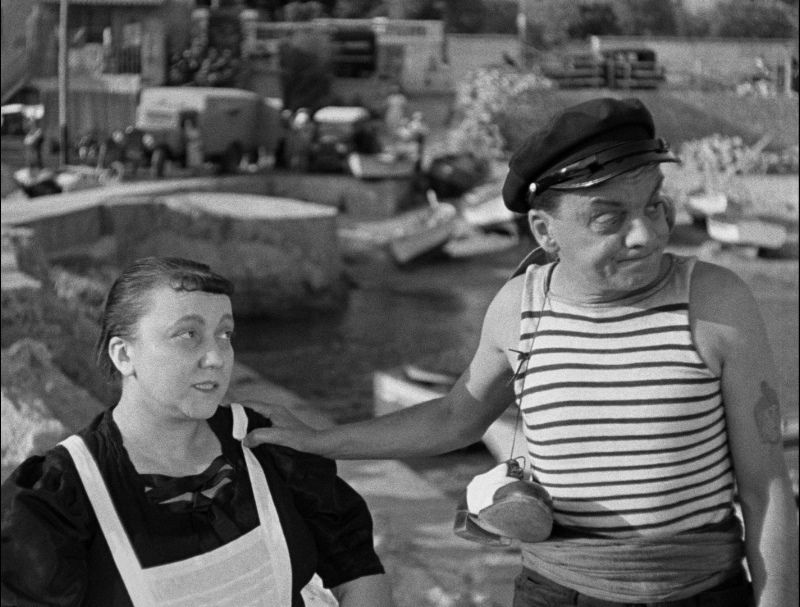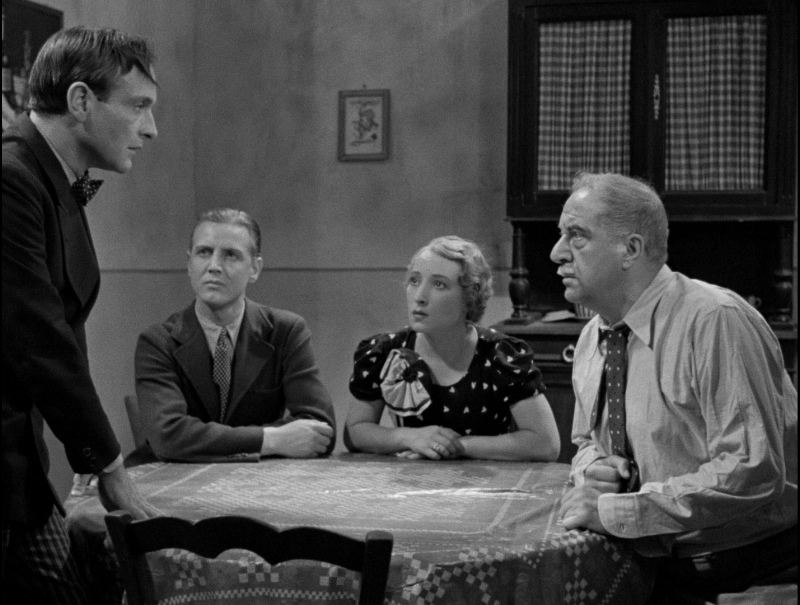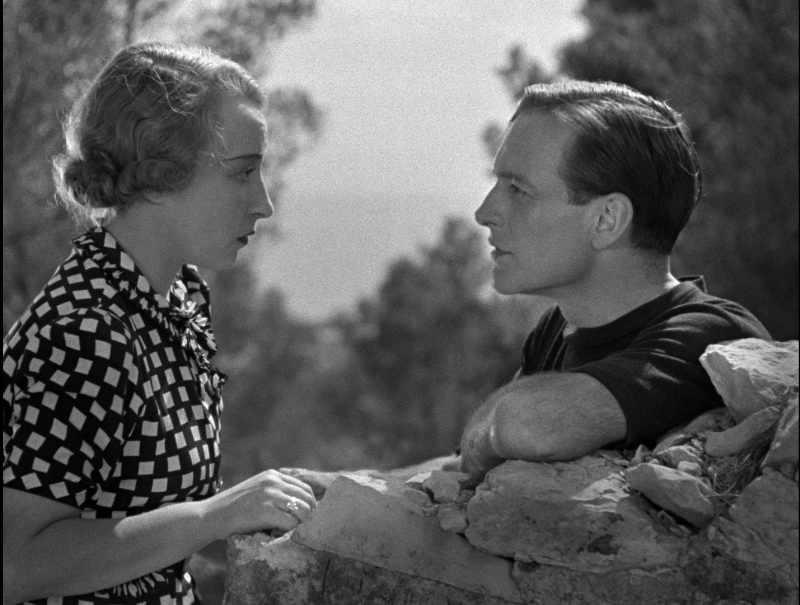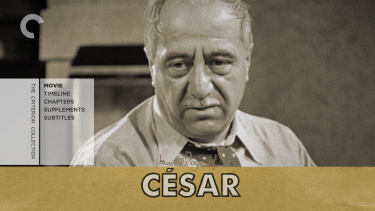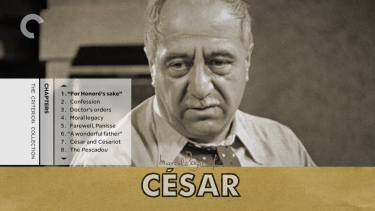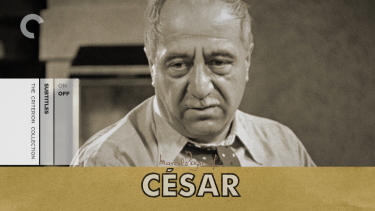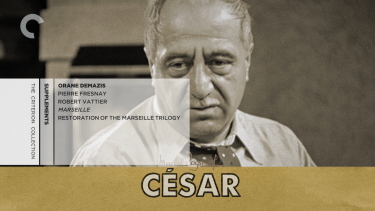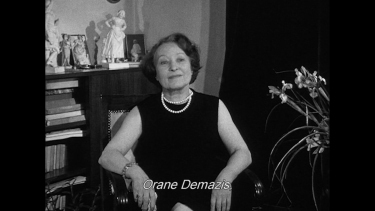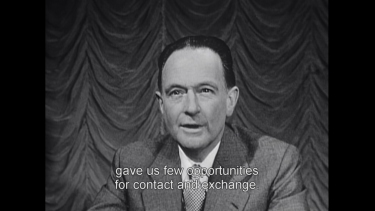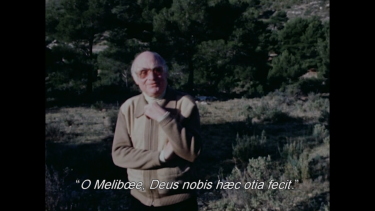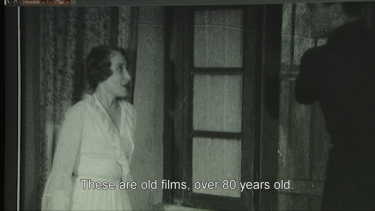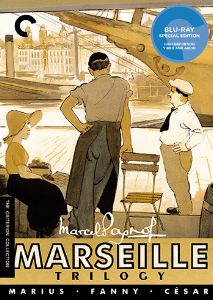![]()
![]()

![]()
![]()
|
Search DVDBeaver |
S E A R C H D V D B e a v e r |
|
|
The Marseille Trilogy (Marius, Fanny, Cesar) [3 Blu-rays]
(Alexander Korda, Marc Allégret, Marcel Pagnol, 1931, 1932, 1936)
Review by Gary Tooze
Production: Theatrical: Les Films Marcel Pagnol Video: Criterion Collection Spine # 881 (#882-884)
Disc: Region: 'A' (as verified by the Oppo Blu-ray player) Case: Custom Blu-ray Sleeve case Release date: June 20th, 2017
Video: Aspect ratio: 1.19:1 - César is 1.37:1 Resolution: 1080p / 23.976 fps Video codec: MPEG-4 AVC Video
Audio: LPCM Audio French 1152 kbps 1.0 / 48 kHz / 1152 kbps / 24-bit
Subtitles: English, none
Extras:
•
New introduction by filmmaker Bertrand Tavernier (19:38)
Bitrates:
Marius
Fanny
Cesar
Description: In the 1930s, Marcel Pagnol, a leading light of the Paris theater, set out for new horizons as a filmmaker in his native Provence. His early masterpieces Marius, Fanny, and César mix theatrical stagecraft with realistic location photography to create an epic love story from the fabric of everyday life. Gruff, sentimental César (music-hall star Raimu) owns a waterfront bar in the Old Port of Marseille where his son, Marius (Pierre Fresnay), wipes down tables and dreams of a life at sea. The prosperous, middle-aged sailmaker Panisse (Fernand Charpin) wants to wed Marius’s sweetheart, Fanny (Orane Demazis), setting up a fateful romantic triangle whose story unfolds across a generation in the films of The Marseille Trilogy, which first earned Pagnol his place in cinema history. “If Pagnol is not the greatest auteur of the sound film,” critic André Bazin wrote, “he is in any case something akin to its genius.”
The Film (Marius): Adapting his hit play Marius for the screen two years after its stage premiere, Marcel Pagnol turned his inimitable creative energies to the new medium of sound cinema in a felicitous collaboration with the Hungarian-born director Alexander Korda, soon to leave his mark on British cinema. Young Marius and Fanny begin to recognize that their lifelong friendship has blossomed into romance, but their hopes of marriage are left unrealized when Marius cannot overcome his longing to go to sea, against the wishes of his adoring father, César, but with Fanny’s selfless encouragement. Pagnol and Korda bring a keening lyricism to this tale of lovers torn between devotion and the restless urge for adventure, a conflict that begins to shape their destinies in ways they could never have predicted. *** In the early sound era, Hollywood made some amazing movies, but few had the sophistication of '30s playwrights like Eugene O'Neill, Clifford Odets, or Thornton Wilder, let alone the likes of Anton Chekhov or Henrik Ibsen. But the French had Marcel Pagnol, a popular playwright who realized as early as 1931 that cinema could record dramas of complexity and wit. That was the year he hired Alexander Korda to direct an adaptation of Pagnol's 1929 stage success Marius, which did so well that he penned a 1932 sequel, Fanny, for director Marc Allégret, and made the series a trilogy in 1936 with César, which he directed himself. Excerpt from AVClub located HERE
Image : NOTE: The below Blu-ray captures were taken directly from the Blu-ray disc. Firstly, these are new 4K digital restorations of all three films on their own Blu-ray disc. The restorations were done in 2015 by La Compagnie Mediterraneenne de Film-MPC et La Cinemateque francaise with the support of the CNC. Marius arrives on Criterion Blu-ray looking very consistent in 1080P. It is on a dual-layered disc with a max'ed out bitrate. The transfer shows some pleasing textures, excellent contrast and surprising detail. This Blu-ray is transferred in the 1.19:1 aspect ratio and the visuals are impressive, considering the film's age. It exceeded my expectations are probably can't look any better.
CLICK EACH BLU-RAY CAPTURE TO SEE ALL IMAGES IN FULL 1920X1080 RESOLUTION
Audio :All three films have a linear PCM mono track at 1152 kbps (24-bit) in the original French language. Dialogue clarity is a factor of the film's age and the uncompressed transfer. It is audible but moderately scattered. The score is by Francis Gromon and I found the audio about on-par with the image quality - so, highly acceptable. There are optional English subtitles and m y Oppo has, predictably, identified it as being a region 'A' disc.
Extras : The Marius Blu-ray offers a new, 20-minute, introduction by filmmaker Bertrand Tavernier recorded in Paris, by Criterion in 2017. There is a new 1/2 hour interview with Nicolas Pagnol, grandson of writer-director Marcel Pagnol who also oversees the archive and distribution of the films. Pagnol’s Poetic Realism, is an excellent 1/2 hour new video essay by scholar Brett Bowles, associate professor of French and film studies at Indiana University, Bloomington and is the author of Marcel Pagnol (2012) - the first comprehensive study of Pagnol's work in English. In this video essay, produced by Criterion, he discusses Pagnol and The Marseille Trilogy in relation to poetic realism in French cinema. Lastly, on the first Blu-ray is a theatrical rerelease trailer.
___________________________
The Film (Fanny): The delicate romanticism of The Marseille Trilogy’s opening encounters harsh reality in this installment, which picks up moments after Marius has left his would-be wife, Fanny, for a sailor’s existence. Soon after his departure, Fanny learns that she is pregnant with his child, to the disappointment of her mother and of Marius’s father, César. To secure a better life for her unborn child, she accepts a marriage proposal from the aging widower Honoré Panisse. By turns moving and disarmingly funny, this portrait of heartbreak and its aftermath is buoyed by Pagnol’s openheartedness toward his characters, and by director Marc Allégret’s vivid and assured depiction of colorful Marseille. *** Part two of Marcel Pagnol's Marseilles trilogy, which began with Marius. The story so far: Marius, eager-beaver son of choleric but loveable César, has deserted Fanny, the love of his life, for the other love of his life, the sea - leaving Fanny bearing his child. Panisse, a middle-aged old fool, offers to solve all problems by marrying the girl himself, thus securing the son he longs for. However, when Marius returns... But plots are the last thing to worry about in the trilogy; one's best bet is to savour instead the finely drawn character studies, the triumphant acting, the warmth, humanity, and tightly-reined sentimentality of Pagnol's whole outlook. Allégret's direction is notably neater than Korda's in the first part or Pagnol's own for César. Excerpt from TimeOut located HERE
Image : NOTE: The below Blu-ray captures were taken directly from the Blu-ray disc.
Fanny is also from the 2015 restoration by La Compagnie Mediterraneenne de Film-MPC et La Cinemateque francaise with the support of the CNC and the 4K digital restorations transferred to Blu-ray by Criterion. It is also on a dual-layered disc with a max'ed out bitrate but the image quality is not as consistent as Marius. Notably in the film's first 15-minutes there are a couple of scenes that seem compromised. Contrast is affected and it's likely the source density has degraded over time. But I'd say it was minor and the rest of the film's integrity is held up by the restoration. I appreciated the textures and the detail improves as the film runs into the second half.
CLICK EACH BLU-RAY CAPTURE TO SEE ALL IMAGES IN FULL 1920X1080 RESOLUTION
Audio :All three films have a linear PCM mono track at 1152 kbps (24-bit) in the original French language. Dialogue clarity is, marginally, improved over Marius. I noted no fatally serious issues - drop-outs or hiss. Like Cesar, the score is by Vincent Scotto and I found the audio quite reasonable. There are optional English subtitles and my Oppo has, predictably, identified it as being a region 'A' disc.
Extras : On the second Blu-ray, as supplements we get segments from Marcel Pagnol: Morceaux choisis, a six-part 1973 documentary series on the life and work of the writer and filmmaker that was produced for French television and features interview footage of Pagnol. It is presented in two segments - part 3 runs close to an hour and the second is 1/2 an hour - both relate directly to The Marseille Trilogy.
_____________________________________
The Film (Cesar): In the final chapter of The Marseille Trilogy, Marcel Pagnol returns his compassionate gaze to his weathered characters as they discover the possibility of reconciliation and the durability of love. Leaping forward twenty years, the trilogy continues with the death of Fanny’s husband, Panisse, and the discovery of her secret by her son, Césariot. The young man resolves to track down his biological father, Marius, whose life has been fraught with calamity and poverty. The only film in the trilogy written expressly for the screen and directed by Pagnol, César resolves the protagonists’ star-crossed destinies with the garrulous wit and understated naturalism that have made this epic love story a landmark of humanist filmmaking. *** The plots are straight melodrama, flavored by the details of seaside life and the rhythms of conversation among people who've known each other for decades. While not set-bound, the pieces of The Fanny Trilogy are overtly theatrical, with minimal action and a surfeit of digressive chat. The best of the series in that regard, César, opens with Charpin on his deathbed, making his confession. ("How often did you sin?" the priest asks. "Often," Charpin replies. "And with gusto.") A lot of César is about characters remembering the details of the first two films, though not in a repetitious way. Instead, they talk about who they were once, how they felt then, and how much has changed with time and wisdom. It's one moment of truth after another. Excerpt from AVClub located HERE
Image : NOTE: The below Blu-ray captures were taken directly from the Blu-ray disc.Cesar is also from the 2015 restoration by La Compagnie Mediterraneenne de Film-MPC et La Cinemateque francaise with the support of the CNC and the 4K digital restorations transferred to Blu-ray by Criterion. It is also on a dual-layered disc with a max'ed out bitrate but the image quality is, not surprisingly, the best of the three - being the youngest by almost 5 years. Detail rises although the overall image may show some greenish hue infiltrating the visuals. There is plenty of depth and impressive detail retaining grain textures. My favorite of the three film, this was a strong 1080P presentation. CLICK EACH BLU-RAY CAPTURE TO SEE ALL IMAGES IN FULL 1920X1080 RESOLUTION Audio :This also has a linear PCM mono track at 1152 kbps (24-bit) in the original French language. Dialogue is very clear - receptive and audible. Like Fanny, the score is by Vincent Scotto and I found it supportive in the uncompressed - sounding, predictably, flat but exporting minor depth. There are, again, optional English subtitles and my Oppo has, predictably, identified it as being a region 'A' disc.
Extras : On the third Blu-ray, Criterion include extras; Marseille, is a 13-minute 1935 documentary about the Marseille harbor produced by Pagnol possibly to accompany the release of Cesar. An example of prewar French genre known as 'documentaire romancé.' ths film features several of Pagnol's regular collaborators. This rare footage is presented here from the best available source and is entirely watchable if not at the same standard as the features. There are archival interviews with three actors; Orane Demazis (3:39), Pierre Fresnay (6:37 - from French television, 1956), and Robert Vattier (10:49 from 1976.) There is also a short French television clip from 2015 about the restoration of the trilogy.
BOTTOM LINE: Gary Tooze May 15th, 2017
|
|

About the Reviewer: Hello, fellow Beavers! I have been interested in film since I viewed a Chaplin festival on PBS when I was around 9 years old. I credit DVD with expanding my horizons to fill an almost ravenous desire to seek out new film experiences. I currently own approximately 9500 DVDs and have reviewed over 5000 myself. I appreciate my discussion Listserv for furthering my film education and inspiring me to continue running DVDBeaver. Plus a healthy thanks to those who donate and use our Amazon links.
Although I never wanted to become one of those guys who
focused 'too much' on image and sound quality - I
find HD is swiftly pushing me in that direction. 60-Inch Class (59.58” Diagonal) 1080p Pioneer KURO Plasma Flat Panel HDTV PDP6020-FD
Oppo Digital BDP-83 Universal Region FREE Blu-ray/SACD
Player APC AV 1.5 kVA H Type Power Conditioner 120V Gary W. Tooze ALL OUR NEW FORMAT DVD REVIEWS
|
![]()
![]()
![]()
![]()


